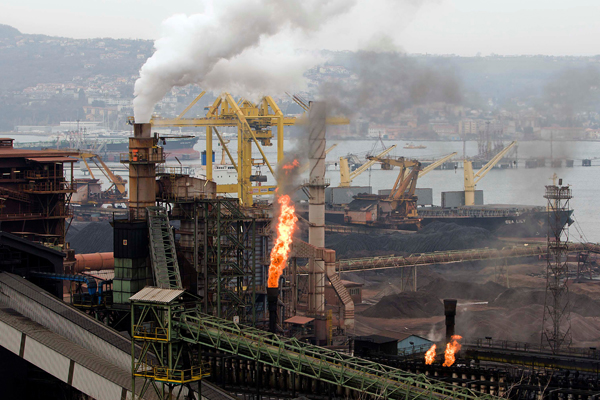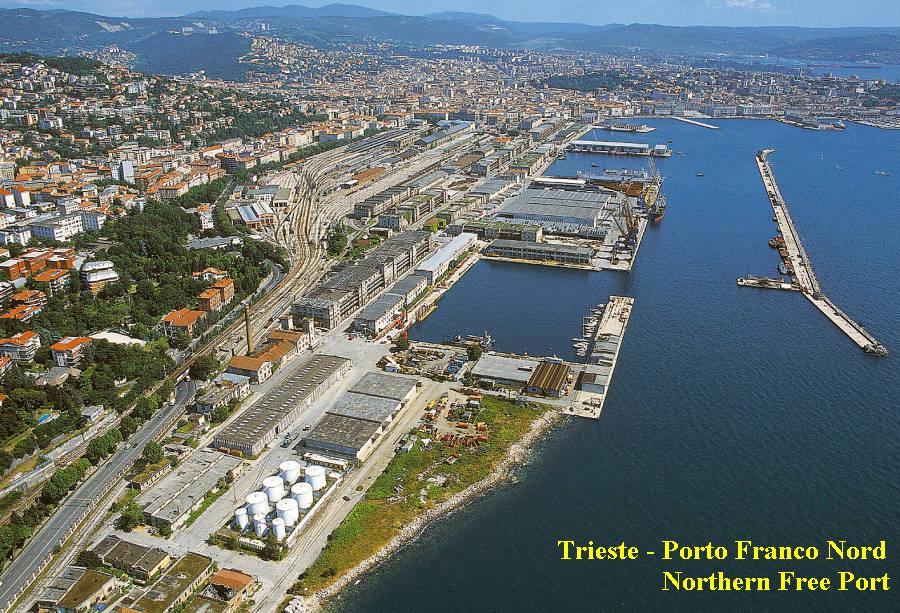
Trieste: Servola Ironworks (Ferriera).
PROGRAMME (DIS)AGREEMENT: ITALY VS ITALY ABOUT THE PORT OF TRIESTE
The ongoing discussions about the Servola Ironworks shows once again how distant the current Italian administration is from the Rule of Law.
In the industrial port of Trieste there is this highly polluting iron factory. Taking advantage of its irreversible crisis, the local political establishment seems willing to make Debora Serracchiani (PD), the President of Region Friuli Venezia Giulia – FVG, the new “Extraordinary Commissioner of the Port” to handle the crisis: in other words, a golpe. They want to cut the local Port Authority out.
As this surreal institutional conflict takes place, it is clear that the goal is getting the hands on the international Free Port of Trieste in order to hand the Northern Free Port over to the Mafia of concrete. Indeed, the massive housing speculation would be a very lucrative business. But it is also illegal, and it would damage the whole city of Trieste and the International community. The only winners would be the members of the local nationalistic “camorra”.
The same that is trying to force the Region’s President as Port Commissioner with a new Programme agreement. However, the Port Authority President, Marina Monassi, sees through the plot, and opposes to it: the Italian machinery of State frauds is defeated, at least this time.
The “agreement” was already signed by all Italian authorities. Except the Port Authority. Only, that is the only body vested with the authority to manage the Port. As if this were not enough, the “agreement” was so flawed no retroactive measure could fix it.
Time to start over again, so far it is all null and void.
Fights among Italian authorities aside, when it comes to Trieste’s port the right question is only one: how could Italian bodies ever decide about a Port that belongs to another State?
By law (The Treaty of Peace with Italy, enforced an implemented in Italian law, including the law that establishes the Region!) Trieste’s International Port does not belong to Italy. It belongs to the Free Territory of Trieste.
Its surfaces are not registered at the cadastral office, its ownership is not registered in the Land Registers, no taxes can be levied there, it is not subject to the legislation of the State of Italy, but to Trieste’s own.
Besides, even under Italian laws this is not how Programme agreements work: when it comes to cases like the Servola Ironworks, only the Presidency of the Council of Ministers could handle the matter, not an Italian Region.
And that is about regular factories in Italian Regions. But Trieste is not an Italian region, it is a State under a provisional regime of Government, sub-entrusted by the Governments of the U.S. and of the U.K. to the Italian Governments, which committed to establish a local, civilian Government in Trieste.
By law, the Port Authority and the Presidency of the Council of Ministers should summon a new Conferenza di Servizi (interdepartmental conference) and draft a correct, legitimate Programme agreement. But if they did, the Italian Government would see how its local bodies turned the rule of law upside-down. For instance, the Commissioner of the Government in the Region could not exercise jurisdiction of the FTT to suspend its free port regime in the Northern sector.
If the Italian Government does not force its local bodies to comply with its 1954 commitments, all sovereign States that are granted special and administrative rights over the FTT’s International Port of Trieste would have good reasons to complain.
The European Union, addressed by international stakeholders, shall soon clarify its standing about the Port of Trieste, which can no longer be regarded as a port subject to Community customs law and taxation.
For instance, not all States with rights over Trieste’s port are in the EU or NATO: a good example is Russia. The often forgotten Russia could one day ask why, in breach of the 1947 Treaty that recognize its status of victorious power, its port rights are denied.
Trieste is indeed a strategic port, not only when it comes to trade.
Translated from blog “Ambiente e Legalità” – “Environment and Legality” by Roberto Giurastante

